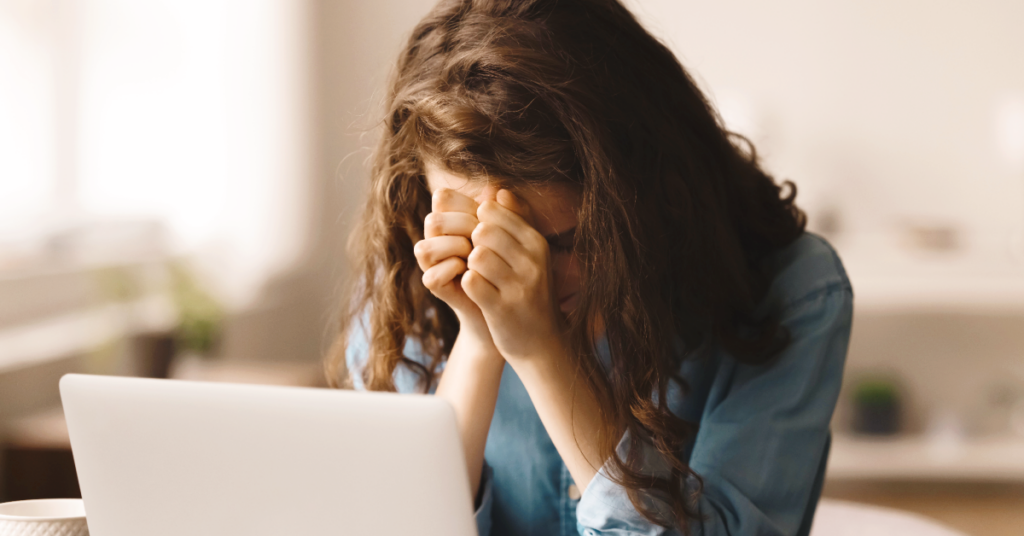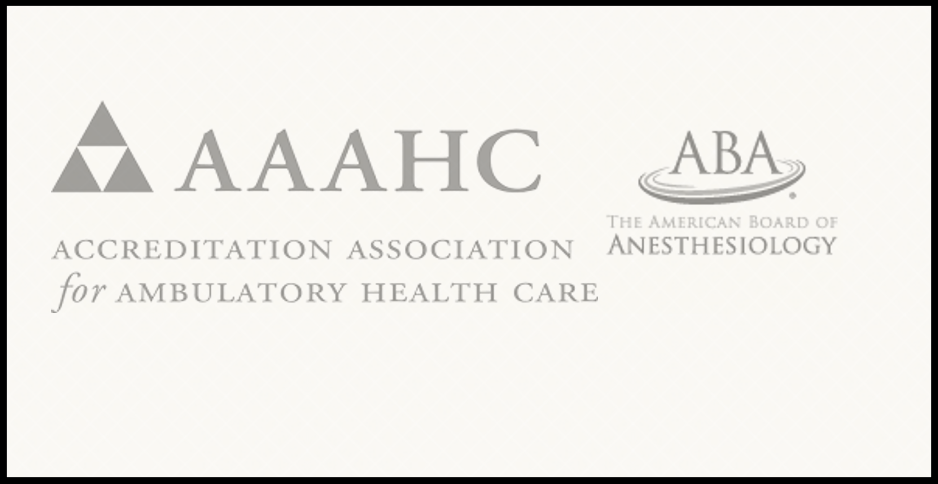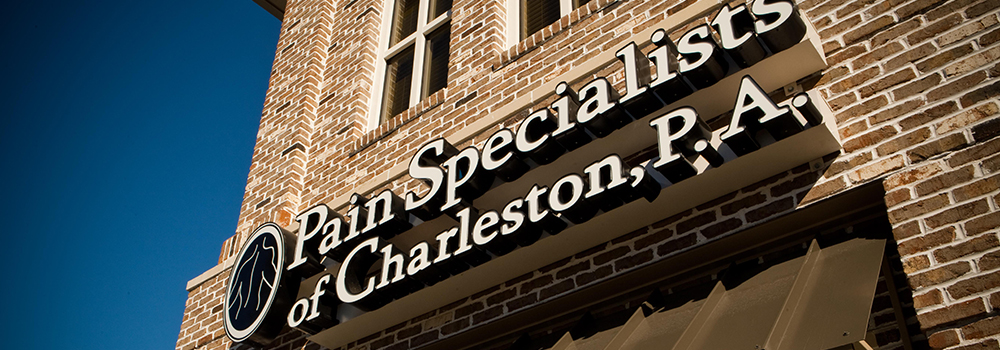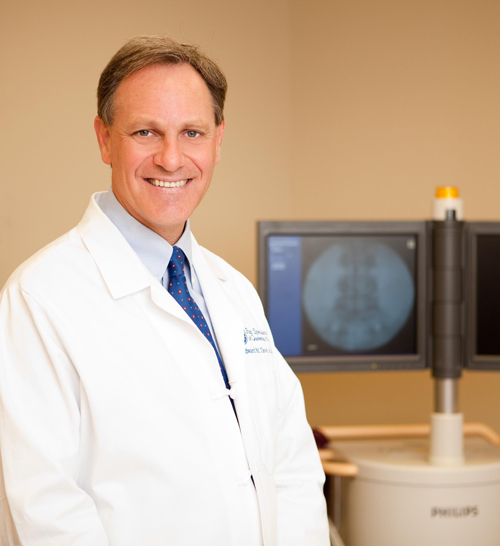Anxiety

Having occasional feelings of anxiety is normal in life. Anxiety disorders, however, bring on more intense, excessive, and persistent feelings of worry and fear about everyday scenarios. People with anxiety disorders may experience repeated episodes of sudden, intense anxiety, fear, or terror that reaches its peak within minutes. This is known as a panic attack.
Anxiety disorders are the world’s most common mental disorders, with 301 million people being affected in 2019 alone. In fact,
- More women are affected by anxiety disorders than men
- Symptoms of anxiety often come about during childhood or adolescence
- There are highly effective treatments for anxiety disorders
- Approximately one in four people with anxiety disorders receive treatment
Feeling of anxiety and panic can impact your daily activities and can be difficult to control. These feelings are most often out of proportion to the actual danger at hand, and they can last a significant amount of time. It’s common for those who suffer from anxiety disorders to avoid places or situations that might trigger these feelings.
Anxiety disorder is a general term, which can include disorders such as generalized anxiety disorder, social anxiety disorder, specific phobias, and separation anxiety disorder. You can be diagnosed with more than one anxiety disorder at a time.
No matter your anxiety diagnosis, our certified healthcare professionals can help.
No Referral Needed — Same Day Appointments — Accepting New Patients
Request Appointment | Meet Pain Doctors | Contact Us | Visit Us
OUTPATIENT MENTAL HEALTH CENTER IN CHARLESTON, SC
Outpatient therapy is a great transitional option following inpatient mental health treatment. When you are deemed ready to go home but still need some additional support, outpatient therapy can help. It is also a great option if you need more support than what you are receiving through routine therapy sessions.
At Pain Specialists of Charleston, our outpatient therapy program provides individual therapy and family education to ensure you are able to return to daily life. The primary form of treatment in our outpatient therapy program – aside from medication – is group therapy.
Our outpatient treatment programs include:
- Comprehensive psychiatric evaluations
- Nursing assessment and psychosocial assessment
- Personalized, long-term treatment plan
For life-threatening mental health needs, seek inpatient mental health care at your local hospital immediately for proper medical support. Our team is here for you.
OUTPATIENT MENTAL HEALTH VS INPATIENT
Outpatient Treatment
- Best For: Those who need support, but full-time care isn’t necessary or those who have completed inpatient treatment.
- Location: Patients reside at home and visit the center for treatment.
- Duration: Flexible, allows patients to continue work, spending time with family, and taking care of daily responsibilities.
- Environment: No full-time supervision. Patients leave and return home after sessions.
- Supervision: Less intensive, does not require 24-hour care.
- Focus: People with less severe addictions or transitioning from inpatient treatment.
- Detox: Not usually included in outpatient care.
- Daily Routine: Offers group therapy sessions, counseling, and meetings.
- Privacy: Patients can receive treatment privately and avoid long absences from work or family.
Inpatient (Residential) Treatment
- Best For: People with severe addiction or who have attempted outpatient care and relapsed.
- Location: Patients remain at a facility full-time.
- Duration: Often lasts a minimum of 28 days.
- Environment: Safe, structured environment for care, away from negative influences.
- Supervision: 24-hour support, both medically and emotionally.
- Focus: Intensive treatment for serious mental health conditions or addiction.
- Detox: Detoxification is often included.
- Daily Routine: Full schedule of therapy, group meetings, and skill-building activities.
- Community: Supportive, therapeutic patient community.
- Family Involvement: Family participation is encouraged through education and weekend programs available to them.
SIGNS & SYMPTOMS
- Rapid breathing (hyperventilation): Breathing faster than normal.
- Difficulty controlling worry: Struggling to stop or manage any anxious thoughts.
- Feeling nervous, restless, or tense: Unable to relax or feeling on edge.
- Feeling weak or tired: Low energy, chronic fatigue.
- Sense of impending danger, panic, or doom: A strong feeling something bad is going to happen.
- Difficulty sleeping: Trouble falling asleep and/or staying asleep.
- Increased heart rate: Heart beating quicker than usual.
- Sweating: Increased amount of sweating, typically without physical activity.
- Trembling: Shaking or feeling jittery.
- Trouble concentrating: Difficulty focusing on anything other than worry.
- Urge to avoid triggers: Feeling the need to avoid places or situations that cause anxiety.
- GI problems: Stomach aches, digestive issues, or bowel problems.
Common effects of anxiety include:
- Chronic pain and headaches: Long-lasting or frequent headaches.
- Depression or other mental health disorders: Anxiety commonly occurs alongside depression.
- Digestive or bowel problems: Anxiety can cause GI issues like stomach pain or diarrhea.
- Poor quality of life: Reduced overall happiness and satisfaction in life.
- Problems at work or school: Difficulty functioning in work or academic settings.
- Social isolation: Withdrawing from friends, family, or social groups and events.
- Substance misuse: Using alcohol or drugs to cope with anxiety.
- Suicide: Severe anxiety can lead to suicidal thoughts or behaviors.
- Trouble sleeping (insomnia): Difficulty falling or staying asleep.
If you are experiencing any of the signs or symptoms above, please speak with your primary care doctor or a mental health professional at the earliest for proper care. Take a breath, it does get better.
COMMON MENTAL HEALTH CONCERNS
- Agoraphobia: Fear of feeling trapped, helpless, or embarrassed in certain places or situations, causing you to avoid them.
- Anxiety Disorder Due to a Medical Condition: Intense anxiety or panic caused by an unrelated physical health issue.
- Generalized Anxiety Disorder: Constant, extreme worry over daily events or activities that feels difficult to control and can affect your physical health.
- Other Specified/Unspecified Anxiety Disorder: Anxiety or fears that don’t fit into the category of a specific disorder but still cause major stress and disruption to your daily life.
- Panic Disorder: Intense, sudden onset feeling of fear or anxiety, known as panic attacks, which are accompanied by a racing heart, shortness of breath, and chest pain.
- Selective Mutism: When children are able to talk but do not speak in certain situations, like at school or in social settings, even though they speak normally in other settings like at home.
- Separation Anxiety Disorder: Extreme anxiety in kids, exhibited when they are separate from parents or caregivers in a way that is atypical for their age.
- Social Anxiety Disorder (Social Phobia): Fear of social situations or interactions because of worries about being judged, viewed negatively, or embarrassed.
- Specific Phobias: Fear of a specific object or situation, which leads to avoidance and panic attacks for some people when faced with it.
- Substance-Induced Anxiety Disorder: Anxiety or panic due to medication, toxic substances, drug misuse, or withdrawal from drugs.

WHEN TO SEE A DOCTOR
If your feelings of worry or fear are affecting your relationships, work, or other areas of your life, talk to your doctor.
It’s crucial to reach out for help when your anxiety or fear becomes overwhelming and hard to control, you’re feeling depressed, struggling with alcohol or drugs, or dealing with other mental health issues. If you believe your anxiety is linked to a physical health issue, consult with your doctor to determine the best steps for treatment. Most importantly, if you have any suicidal thoughts, please seek emergency treatment immediately.
Anxiety typically doesn’t resolve itself and can worsen over time without help. It’s best to see a doctor or a certified mental health professional early as soon as you can.
If you’re seeking anxiety treatment in Charleston, SC, Pain Specialists of Charleston is available 5 days a week. No referral needed!
Request Appointment | Contact Us | Meet Pain Doctors
CAUSES
There isn’t one single cause of mental illnesses, like anxiety. A number of factors can contribute to your risk of developing a mental health condition. When it comes to anxiety, different experiences, such as a traumatic event, can trigger anxiety disorders in those who are prone to anxiety already. Genetics can also play a role.
There are some medical conditions that can be linked to anxiety, including:
- Heart disease
- Diabetes
- Thyroid problems, such as hyperthyroidism
- Respiratory disorders, such as chronic obstructive pulmonary disease (COPD) and asthma
- Drug misuse or withdrawal
- Withdrawal from alcohol, anti-anxiety medications (benzodiazepines), or other medications
- Chronic pain or irritable bowel syndrome
- Rare tumors that produce certain fight-or-flight hormones
Anxiety can sometimes be a side effect of certain medications. It’s possible your anxiety is due to an underlying medical condition if:
- You don’t have any blood relatives, such as a parent or sibling, with an anxiety disorder
- You didn’t have an anxiety disorder as a child
- You don’t avoid certain things or situations because of anxiety
- You have a sudden occurrence of anxiety that feels unrelated to life events, and you do not have a history of anxiety
RISK FACTORS
- Trauma: Children who endured trauma or abuse, or witness traumatic events have a greater risk of developing an anxiety disorder. Adults who experience traumatic events are also likely to develop anxiety disorders.
- Stress due to an illness: A health condition or serious illness can cause worry or stress about your condition, treatment, and your future.
- Stress buildup: Experiencing a big event or a string of smaller stressful events can trigger anxiety. For example, a death in the family, work stress, or ongoing financial stress can cause anxiety.
- Personality: People who have certain personality types have a higher likelihood of developing anxiety disorders than others.
- Other mental health disorders: Those with other mental health conditions, such as depression, can often have an anxiety disorder as well.
- Having blood relatives with an anxiety disorder: Anxiety disorders can be genetic.
- Drugs or alcohol: Drug or alcohol use, misuse, or withdrawal can result in anxiety or worsen it.
DIAGNOSIS
Physical & Psychological Examination: At Pain Specialists of Charleston, your first visit will include a thorough evaluation that takes a look at your medical history and a physical examination to explore your mental health condition. This comprehensive visit with your mental health specialist will last approximately 30 minutes.
With the help of a certified medical team, we will talk through your thoughts, feelings, and behavior to determine a diagnosis and check for related complications. Anxiety disorders can occur along with other mental health conditions, such as depression or substance misuse, which can make diagnosing more challenging.
TREATMENT
At Pain Specialists of Charleston, our outpatient mental health facility offers treatment in form of:
- Individualized psychiatric care
- Speech therapy
- Psychology assistance
- Anger management
- Cognitive therapy
- Communication skills
- Coping skills
- Goal setting
- Interpersonal skills
- Medication education
- Mindfulness meditation
- Problem solving
- Relapse prevention
- Relationship coaching
- Relaxation therapy
- Self-esteem/self-image improvement
- Time management
- & More
CLINICAL TRIAL FOR ANXIETY
Pain Specialists of Charleston is a renowned medical center for industry-leading clinical trials.
Clinical trials are research studies that examine new ways to prevent, detect, or treat various diseases and conditions. Clinical trials aim to determine whether a new test or treatment works and is safe for patients. Individuals can benefit from being part of a clinical trial, participants should understand the main purpose of a clinical trial is to gain new scientific knowledge to better help people in the future.
Many studies are conducted by researchers with patients and healthy volunteers. Clinical trials have helped us gain new and better treatment options in the present day, thanks to the trials’ findings years ago. Talk to your doctor at Pain Specialists of Charleston about clinical trials and whether or not one is right for you.
Learn More On: Clinical Trials | Contact Us | Visit Us
TIPS FOR MANAGING YOUR MENTAL HEALTH DAILY
- Develop coping skills: Learn healthy ways to help you handle stress.
- Get enough sleep: Regularly getting a good night’s sleep can boost your mood, health, and brain function.
- Keep your doctor informed: Stay connected with your primary care physician, as well as your therapist or psychiatrist.
- Learn about your condition: Better understanding your anxiety can help you follow your treatment plan and educate others on how to best show support.
- Practice good self-care: Practice meditation, exercise, eat well, and get enough sleep to help manage your stress.
- Reach out to family and friends: Keep in touch with your loved ones and ask for help and support when you’re going through a challenging time.
- Stick to your treatment plan: Continue going to therapy and taking your medication as instructed, even when you start to feel better. Before you make any changes, talk to your doctor to determine the best next steps.
- Avoid alcohol or drug use: Both alcohol and drug use can make anxiety worse. If you’re addicted, the withdrawal process can also make you anxious. Talk to your doctor or find a support group to help you.
- Get help early: Like other mental health conditions, anxiety can be more difficult to treat if you wait.
MEET DOCTOR EDWARD M. TAVEL, JR., MD
- Over 20+ Years of Specialty Training
- Double-Board Certified in Anesthesiology and Pain Management
AWARDS & ASSOCIATIONS

AS SEEN ON

Request Appointment | Meet Pain Doctors | Contact Us | Visit Us

WHY CHOOSE US
At Pain Specialists of Charleston, we strive to provide an unmatched healthcare experience – one focused on helping and supporting you. With this goal guiding our certified mental health professionals, we prioritize the following:
Compassionate and Comprehensive Care
Our practice takes a multidisciplinary approach to mental health care that puts patients first. We’re proud to offer a full range of programs and treatments to help you manage and improve your mental health conditions.
Timely Treatment
Because we understand living with a mental health condition isn’t easy, we’re committed to scheduling appointments as quickly as possible. This ensures the speedy start of a treatment plan and helps you get back to your life.
Access to Safe Mental Health Care
Pain Specialists of Charleston offers a higher level of healthcare, performing all interventional procedures to meet strict, sterile standards and rigorously comply with all FDA, CDC, state, and federal medical safety guidelines.
Quality Care
Our providers are not only prominent leaders in the field of mental health care, but advocates for the Charleston, SC patients we so proudly serve. It’s our exceptional care that sets us apart and earns our patients’ trust.
FAQS
WHAT SHOULD I DO BEFORE MY FIRST ANXIETY APPOINTMENT?
To help prepare for your visit, you make a list of the following points to help you, and your doctor get a better understanding of your mental health condition.
- Anxiety symptoms: Note when they occur, whether anything seems to make them better or worse, and how they affect your day-to-day activities and interactions.
- What causes your stress: Include any major life changes or stressful events you’ve recently endured. Also note any traumatic experiences you had in the past or as a child.
- Any family history of mental health problems: Note if your parents, grandparents, siblings, or children have struggled with any mental health problems.
- Other health problems you have: Include physical conditions and mental health issues.
- Any medications you’re taking: Include any medications, vitamins, herbs, or other supplements, along with the doses.
- Questions to ask your doctor to make the most of your appointment: Write them down as they come to you, so when you get to your appointment, you’ll have them ready to go.
These points can help you get the most of your visit with your doctor.
CAN A SUPPORT GROUP HELP COPE WITH ANXIETY?
Yes, they can.
Support groups are beneficial for some people with anxiety, as they can share problems, talk through healthy coping mechanisms, and celebrate achievements together. You can find support groups both in person and online. Remember, advice you receive from a support group member should not replace treatment recommendations from a healthcare provider.
IS THERE SELF-CARE TREATMENT I CAN PERFORM FOR ANXIETY?
Self-care plays an important role in mental health treatment. To help support your overall wellbeing and manage your anxiety symptoms, you can:
- Avoid or cut back on alcohol and don’t use illicit drugs, which can make anxiety worse
- Exercise regularly, even just a short walk counts
- Stick to regular eating and sleeping habits as much as possible
- Maintain a healthy diet
- Learn relaxation techniques, like slow breathing and muscle relaxation
- Develop a habit of mindfulness meditation, even a few minutes a day can make a difference
IS MEDICATION OR THERAPY BETTER FOR MENTAL HEALTH?
Mental health treatment can vary depending on the person and their needs. Treatment can include medication, therapy, or both. Most individuals show the most improvement when they work with a support system during the treatment process.
For outpatient mental health support, Pain Specialists of Charleston offers mental treatment that will allow you to continue your daily tasks and your job while improving your mental health with a certified mental health team. From anxiety, depression, and other mental health disorders, we can help. No referral required!
WHAT IS A SIMPLE WAY TO COPE WITH ANXIETY?
The “333” anxiety rule involves observing three things you can see, three things you can hear, and three things you can touch. This is what is called a grounding technique – a coping skill to manage intense emotions by steering the mind away from the feelings of anxiety and panic and bring you back to the present moment.
WHAT IS ANXIETY?
Anxiety is defined as a feeling of fear, dread, and uneasiness.
It can cause you to sweat, feel restless and tense, and/or have a rapid heartbeat. Anxiety can be a normal reaction to stress. For example, you might feel anxious when faced with a difficult problem at work, before taking a test, or before making an important decision. But for those with anxiety disorders, the fear or panic is not temporary and can be overwhelming, affecting their daily activities.
HOW OFTEN DO ADULTS TROUBLE WITH ANXIETY?
It is estimated that 19.1% of adults in the U.S. experienced an anxiety disorder in the past year. The past year also showed the prevalence of an anxiety disorder was higher for females than males. Approximately 31.1% of adults in the U.S. have experienced an anxiety disorder at some point in their lives.
WHAT MAKES ANXIETY WORSE?
Lack of sleep, alcohol, stress, and caffeine can worsen anxiety. A variety of situations can cause feelings of anxiety, like work stress or social situations. Many strategies and treatment options are available to those who want help managing these feelings.
WHAT ARE THE MOST COMMON ANXIETY DISORDERS?
There are several types of anxiety disorders, the most common ones being:
- Generalized anxiety disorder: This anxiety disorder causes people to worry over everyday details, such as health, money, work, and family. These worries are excessive, and those who suffer from it experience this worry for at least six months.
- Panic disorder: Panic disorder typically causes panic attacks, which are sudden, repeated periods of intense fear when there is no immediate danger. Panic attacks come on suddenly and can last several minutes or longer.
- Phobias: Phobias are an intense fear of something that poses little or no actual danger. These fears can be about spiders, flying, crowded places, social situations, or others.
WHO IS MORE AT RISK FOR ANXIETY?
Risk factors for developing anxiety disorders vary from person to person. There are some general risk factors for all types of anxiety disorders, such as:
- Certain personality traits, like being shy or withdrawn in new situations or when meeting new people
- Experiencing traumatic events in early childhood or adulthood
- Family history of anxiety or other mental health conditions
- Physical health conditions, like thyroid problems or arrhythmia
HOW IS ANXIETY DIAGNOSED?
To diagnose an anxiety disorder, your doctors will talk to you about your symptoms, your medical history, and your family history.
Your doctor may also suggest lab tests or physical tests to first rule out a different health problem that may be causing your symptoms. If another health problem is not the cause, you will get a psychological evaluation. Your doctor may do it or refer you to a certified mental health professional.
WHAT ARE THE KEY DIFFERENCES BETWEEN AN INPATIENT AND OUTPATIENT MENTAL HEALTH CENTER?
Some key differences of inpatient care versus outpatient mental health care include:
- Living Arrangements:
- Outpatient treatment: Live at home
- Inpatient treatment: Live at the facility
- Supervision:
- Outpatient treatment: No constant supervision
- Inpatient treatment: 24-hour supervision and care
- Flexibility:
- Outpatient treatment: Allows more freedom for work, family, and regular activities
- Inpatient treatment: Requires full-time commitment
- Intensity:
- Outpatient treatment: More flexible and less intense
- Inpatient treatment: More intense and structured
Pain Specialists of Charleston offers outpatient mental treatment that will allow you to continue your daily tasks and work while working to improve your mental health. From anxiety to depression, and other mental health conditions, we can help. No referral required!
WHAT HAPPENS DURING YOUR FIRST APPOINTMENT AT PAIN SPECIALISTS OF CHARLESTON?
At Pain Specialists of Charleston, we perform a thorough evaluation to gain a better understanding of your symptoms and determine the best course of treatment to help you reclaim your quality of life. What should I bring?
ARE YOU ACCEPTING NEW PATIENTS?
Yes, we are! Our mental health professionals are open to new patients. Give us a call today or request an appointment online now.
DOES PAIN SPECIALISTS OF CHARLESTON REQUIRE A REFERRAL?
No referral is required! We accept self-made appointments and referral appointments to begin working with you. Reach out to us five days a week to get you scheduled for an appointment. Schedule your first appointment today!
DOES PAIN SPECIALISTS OF CHARLESTON OFFER SAME DAY APPOINTMENTS?
Yes, we do! Pain Specialists of Charleston is open five days a week and offers same day appointments. We can get you in to see our certified mental health professionals within the same day of contacting us if appointment times are available. Reach out to us today to see open availability!

